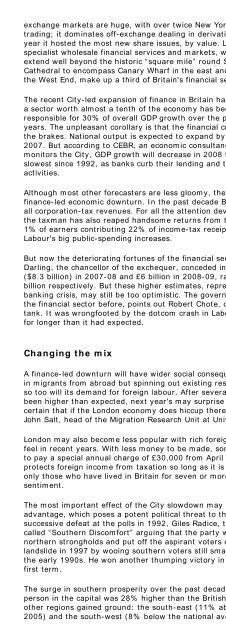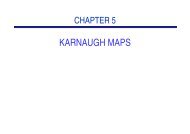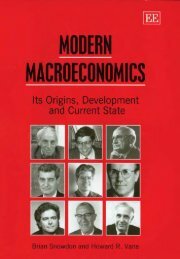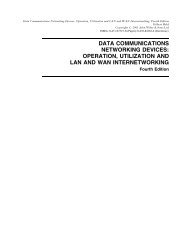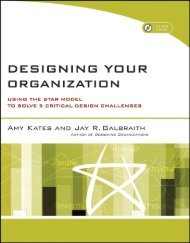The Economist December 1st 2007 - Online Public Access Catalog
The Economist December 1st 2007 - Online Public Access Catalog
The Economist December 1st 2007 - Online Public Access Catalog
- No tags were found...
You also want an ePaper? Increase the reach of your titles
YUMPU automatically turns print PDFs into web optimized ePapers that Google loves.
exchange markets are huge, with over twice New York's share oftrading; it dominates off-exchange dealing in derivatives; and lastyear it hosted the most new share issues, by value. London'sspecialist wholesale financial services and markets, which nowextend well beyond the historic “square mile” round St Paul'sCathedral to encompass Canary Wharf in the east and Mayfair inthe West End, make up a third of Britain's financial sector.<strong>The</strong> recent City-led expansion of finance in Britain has meant thata sector worth almost a tenth of the economy has beenresponsible for 30% of overall GDP growth over the past threeyears. <strong>The</strong> unpleasant corollary is that the financial crisis will applythe brakes. National output is expected to expand by about 3% in<strong>2007</strong>. But according to CEBR, an economic consultancy thatmonitors the City, GDP growth will decrease in 2008 to 1.4%, itsslowest since 1992, as banks curb their lending and tradingactivities.Although most other forecasters are less gloomy, the government has good reason to worry about afinance-led economic downturn. In the past decade Britain's financial sector has contributed about 30% ofall corporation-tax revenues. For all the attention devoted to how some escape their fair share of taxes,the taxman has also reaped handsome returns from the City's high fliers, who make up many of the top1% of earners contributing 22% of income-tax receipts. <strong>The</strong> fiscal dividend has been vital in paying forLabour's big public-spending increases.But now the deteriorating fortunes of the financial sector threaten the health of the public finances. AlistairDarling, the chancellor of the exchequer, conceded in October that borrowing would overrun by £4 billion($8.3 billion) in <strong>2007</strong>-08 and £6 billion in 2008-09, raising the total budget deficit to £38 billion and £36billion respectively. But these higher estimates, representing the Treasury's first stab at the impact of thebanking crisis, may still be too optimistic. <strong>The</strong> government has got its sums wrong about revenues fromthe financial sector before, points out Robert Chote, director of the Institute for Fiscal Studies, a thinktank.It was wrongfooted by the dotcom crash in Labour's second term, when revenues fell by more andfor longer than it had expected.Changing the mixA finance-led downturn will have wider social consequences too. London acts as a huge turntable, suckingin migrants from abroad but spinning out existing residents to the rest of the country. As the City slows,so too will its demand for foreign labour. After several years in which national immigration figures havebeen higher than expected, next year's may surprise by coming in lower than expected. “It is prettycertain that if the London economy does hiccup there will be a slowdown in immigration to Britain,” saysJohn Salt, head of the Migration Research Unit at University College London.London may also become less popular with rich foreigners, who have given it an increasingly plutocraticfeel in recent years. With less money to be made, some may be put off staying by the prospect of havingto pay a special annual charge of £30,000 from April 2008 if they claim non-domicile status, whichprotects foreign income from taxation so long as it is not remitted to Britain. <strong>The</strong> “non-dom” tax will affectonly those who have lived in Britain for seven or more years but it already seems to be affectingsentiment.<strong>The</strong> most important effect of the City slowdown may be to change the regional balance of economicadvantage, which poses a potent political threat to the current government. After Labour's fourthsuccessive defeat at the polls in 1992, Giles Radice, then one of its MPs, wrote an influential pamphletcalled “Southern Discomfort” arguing that the party would continue to fail so long as it stayed stuck in itsnorthern strongholds and put off the aspirant voters of the south. Tony Blair got the message and won alandslide in 1997 by wooing southern voters still smarting from the economic pain of the housing crash inthe early 1990s. He won another thumping victory in 2001, as London and the south thrived in Labour'sfirst term.<strong>The</strong> surge in southern prosperity over the past decade has been greatest in London. In 1995 output perperson in the capital was 28% higher than the British average; by 2005 it was 36% greater. Only twoother regions gained ground: the south-east (11% above the national average in 1995; 15% above it in2005) and the south-west (8% below the national average in 1995; 6% below it in 2005). Scotland,


